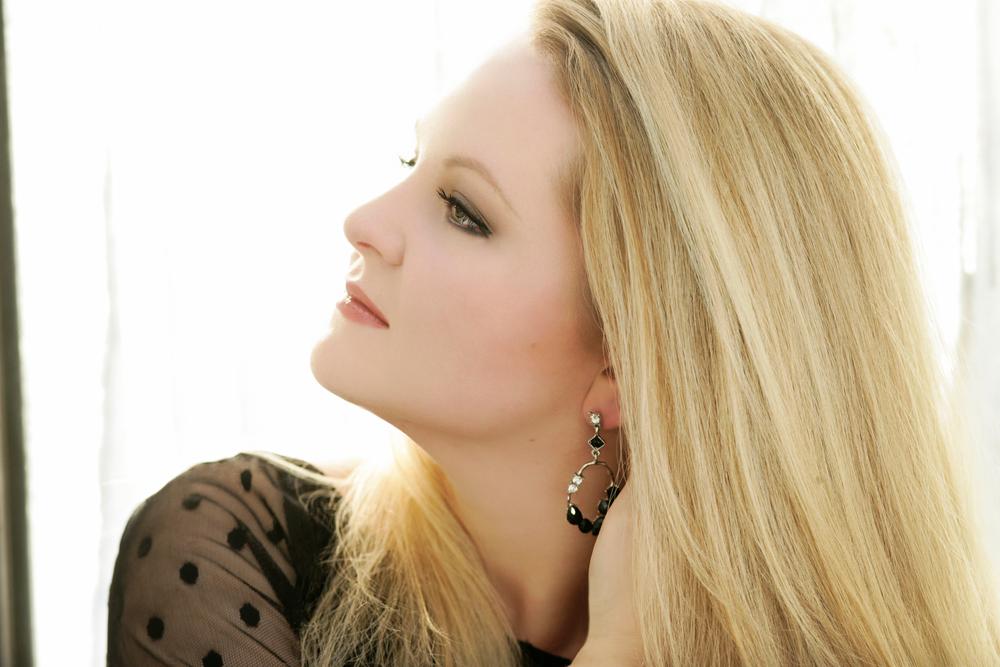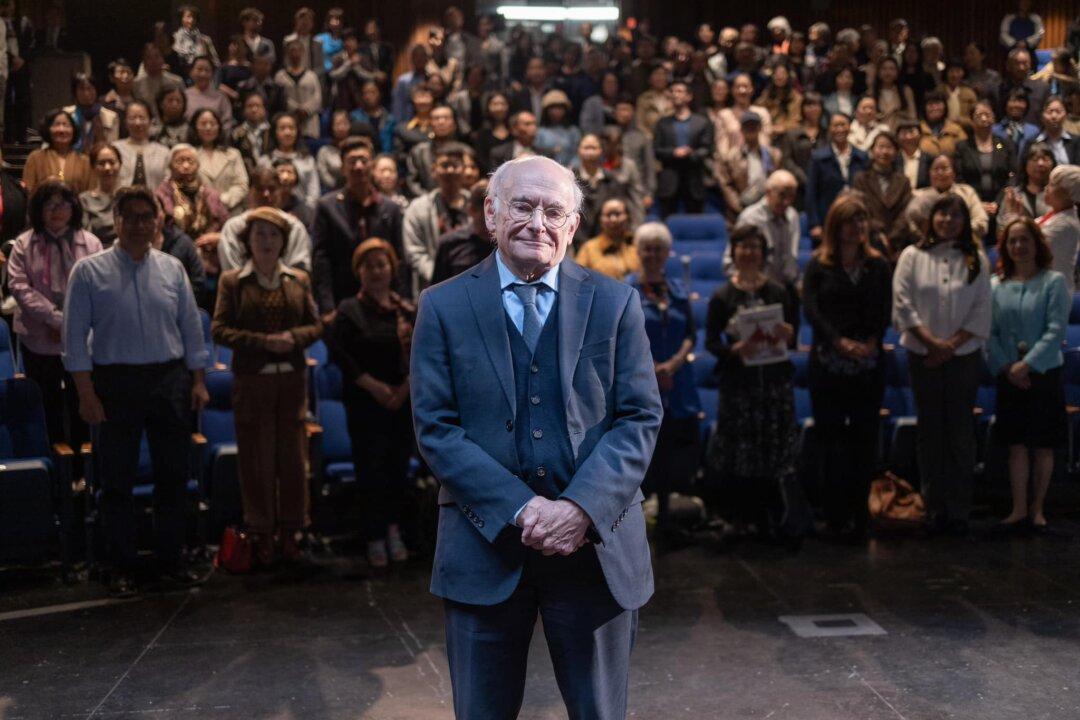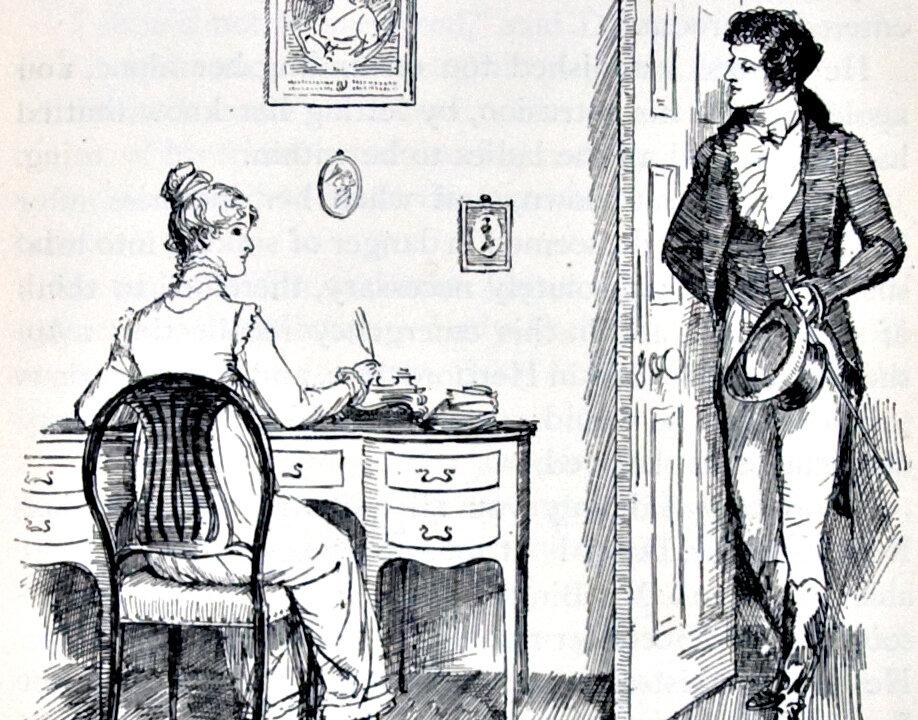American mezzo-soprano Elizabeth DeShong has performed the role of Suzuki, Madama Butterfly’s faithful servant, three times this year. The first was early winter with New York’s Metropolitan Opera Company, then this summer with the San Francisco Opera, and this October with the Canadian Opera Company.
And while the directors of the different productions have brought their particular interpretations to Puccini’s beloved opera—one of the most performed in the world—DeShong has remained relatively constant in her vision of Suzuki—a true friend who speaks with her silence and touches with her songs—earning critical acclaim for her portrayal.
Epoch Times: Tell us about Suzuki and how you see her.
Elizabeth DeShong: Suzuki has become one of my favourite roles to play. Suzuki constantly is balancing the line between her duty and her friendship with Butterfly and she is constantly choosing when to speak and when to just be a support system. I think throughout the whole piece, she is the one constant. She is the one that’s always there for Butterfly and a true representation of what friendship and loyalty can be. I can’t actually think of another character that exemplifies that the same way that she does in another piece. I think it’s an exceptional relationship that she and Butterfly share.
Epoch Times: Can you identify with the role?
DeShong: I think everyone can a little bit. When you are trying to be a good friend, sometimes maybe you see something clearer than someone who is in an emotional situation. You might see it a little bit—from the outside you get a clearer perspective and you balance how much is your place to say—when you should just listen and when you should speak.
I find Suzuki almost speaks loudest in her silences. She’s always listening, always trying to gauge the situation and in Butterfly’s exuberance, she may not see some of the dangers, but Suzuki is there, and she knows, and she keeps them with her, constantly watching out for her well-being.
Generally, people who listen more and speak less maybe have a clearer understanding of things. I think that’s what Suzuki has. Even though the age difference between them in this piece is only 5 to 7 years, Butterfly being 15 and Suzuki being 20-22, that’s how she’s more mature, that’s how she has that bit of understanding that Butterfly in her teenage rebellion and hormones forgets. I think Suzuki has a clearer mind because she observes so much.
Epoch Times: What do you enjoy the most about singing this role?
DeShong: Just the piece itself has so much to offer. You get every range of emotion from beginning to end. It’s such a treat that way. When Suzuki isn’t singing, it’s a treat to listen to.
The thing I like best about Suzuki even lies outside of the music. I like the trajectory that she takes, the emotional journey that she has, because all of act 1, Suzuki doesn’t sing a whole lot but she is present—and it’s that exchange of energy that you have with every character. Even though you’re not saying much, you have to be so present and in the moment, and she gathers up that energy to then release musically in acts 2 and 3. I love that about her—that she is an observer before a speaker.
Epoch Times: Do you find this in yourself?
DeShong: I try to take things in and assess them a little bit before asserting myself in a situation, so I guess I do identify with that. I think performing pushes me out of myself and that’s why I like it. It’s safer being an exaggerated version of someone else than forcing your true person on people. I think that’s part of the joy of performing for me.
As an actor/actress, that’s what you have to do in every situation—you have to find the bits that resonate in your person, through your experience, and then heighten them to share that with an audience.
Epoch Times: You’ve sung the role of Suzuki with both Patricia Racette and Kelly Kaduce (who play Madama Butterfly in the COC productions). What’s it like working with these two women?
DeShong: Kelly and Pat are both magnificent Butterflys. Kelly was actually the first Butterfly I ever sang with and Patricia is my most recent Butterfly in San Francisco and both of them are such capable and generous singing actresses that it’s such a treat for me to be able to work with both of them—sometimes back to back—one night after the other. It’s a real treat because they each bring something very different, but equally powerful.
Honestly, I think people should come see this opera twice because it’s such a different piece depending on the cast that you’re seeing, and I think that’s what makes it so strong. The piece is so timeless, it resonates so deeply with us that it’s fun to come and see what individuals bring to it.
Epoch Times: What are some of the differences?
DeShong: Patricia brings such a calm confidence to Butterfly that it just draws you in. She’s done the piece many times, but you always know that when she comes, she hears it fresh each time and she hears her colleagues and it’s such a collaborative way of working.
Kelly is much the same way. Kelly brings a youthful vitality to it that has more physical demonstration of the character, but again she’s another actress that you can just find something new each time you do the piece together. It’s hard to separate them because they’re so different but so committed that they’re just both so strong, and worth seeing in the role. It’s a treat.
Epoch Times: You’ve sung the role of Suzuki three times this year. Tell us about singing the role in different productions.
DeShong: In my first production [at the Met this year], Suzuki was played as a motherly, almost grandmotherly-type figure and in that scenario I think of Suzuki as a child left behind, just like Sorrow in the piece (Butterfly’s son). I think of Suzuki as maybe being that—being a child that was left behind and who has fallen into this situation of being a supportive part of a household. So when I play her older, that’s a fun backstory—where she gets her wisdom, where she gets her concern, maybe she has a little more worry early on because she’s seen it and she’s lived it.
In the other productions that I’ve done I’ve played her closer to my own age or younger. Then it focuses in on the bond with Butterfly being young—it shares a little more of a friendship as opposed to a motherly parent-child type of feeling. But I think both can be equally powerful.
In this one (Canadian Opera Company’s production), we’re both a little younger and I think it works really well to be young, and then it highlights the friendship, it highlights the friendship and the support system. And it’s amazing in girls so young—I mean, teenage pregnancy. These issues are relevant now—it sounds silly, Puccini, opera, and all of these things—but it’s a 15-year-old with a child and a 22-year-old best friend and they’re there together just hoping that things work out, and that’s not unlike people’s situations on the street, just out in the world. It’s not so different—I think that’s why we relate to it so well, why the piece holds up to time. Everybody’s experienced love and loss on some level, or they’re things we’re searching for, so I think people can find little bits of themselves in all the characters in this piece.
Everything seems so heightened in opera sometimes, but the underlying things are just humanity—humanity lifted and elevated and I think you can find so much of that in “Madama Butterfly.”
The Canadian Opera Company’s production of “Madama Butterfly” runs until Oct. 31 at the Four Seasons Centre for the Performing Arts. For more information, visit: www.coc.ca





